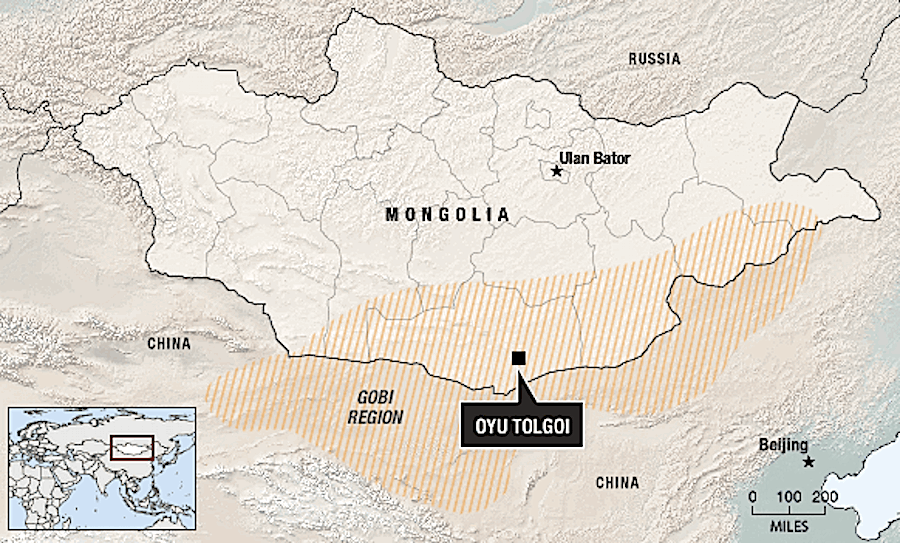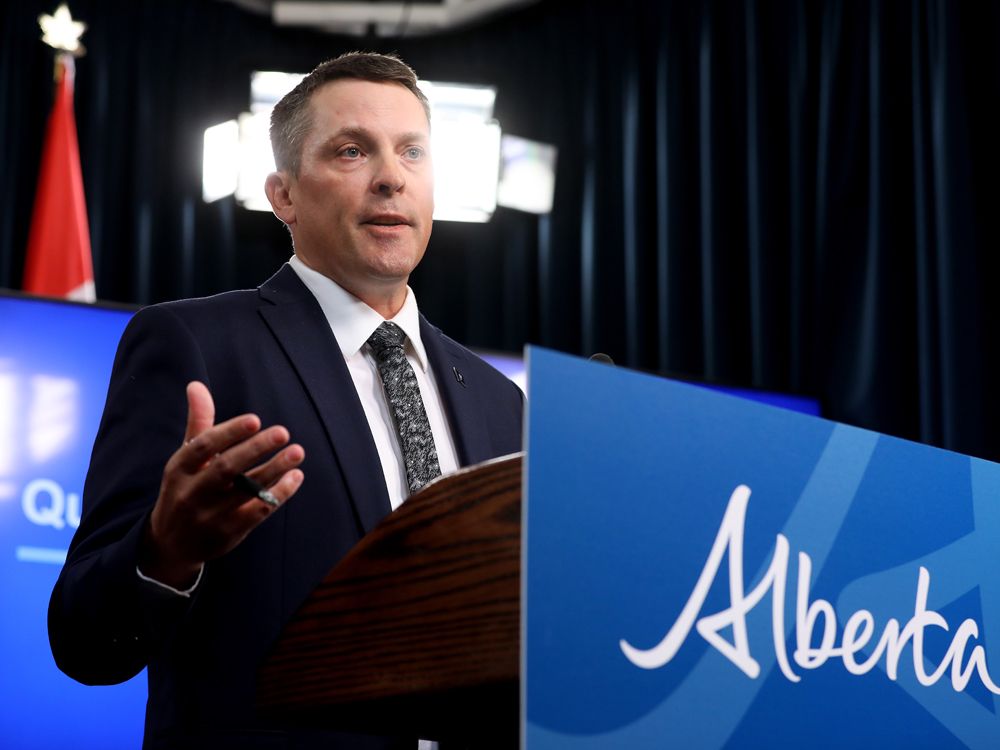That deal is commonly known in Mongolia as the “Dubai agreement”, because the nation’s then Prime Minister Chimediin Saikhanbileg struck it with former Rio Tinto’s boss Jean-Sebastien Jacques in a Dubai hotel, ending an impasse that had lasted close to three years.
Rio Tinto and Turquoise Hill need to address a number of geological, financial, engineering and power supply issues before considering changes to the agreement governing the $6.75bn underground expansion.
Ulaanbaatar is not happy with the updated figures. Earlier this week, it announced that it would ask Rio Tinto and its majority-owned Turquoise Hill (TSX, NYSE: TRQ) to revisit the economic benefits the expansion will bring to the state’s coffers.
“The government of Mongolia supports the Oyu Tolgoi underground mine development, which is viewed as holding benefits to the Mongolian economy because 80% of Oyu Tolgoi’s value lies beneath the surface,” Solongoo Bayarsaikhan, Mongolia’s Deputy Chief at Cabinet Secretariat said on Thursday.
“It is calculated that Mongolia will not receive dividend payments until 2051 and will incur debts of $22 billion. In addition, Oyu Tolgoi is estimated to pay profit taxes or corporate income taxes only in four years until 2051,” she noted.
In Bayarsaikhan’s view, the government of Mongolia may never receive a dividend from Oyu Tolgoi, in which the country has a 34% interest. This is because the billions of dollars in loans taken on to develop the existing open pit mine and the underground expansion have to be repaid before the state gets a dividend.
Both Rio Tinto and Turquoise Hill have said they are ready to engage with local authorities, with analysts warning the looming renegotiations could cause further delays to the already deferred project.

“Any delays in obtaining approvals beyond the first half of 2021 may result in further value erosion of the project, which we expect to ramp up in October 2022,” Morgan Stanley analyst Alain Gabriel wrote this week. “A potential renegotiation of the mining agreement could result in some value leakage as the government seeks to accelerate its access to cash flows.”
BMO Jackie Przybylowski said the government’s claims highlight its legitimate concerns over the distribution of cash flows from the mine.
“Although we don’t model any change to the structure of the investment agreement, we do believe that a change is possible, which would improve the structure for all sides,” she wrote, adding that BMO did not anticipate a disruption to production or ownership.
Preferred outcome
The best scenario for everyone involved in the mine development, which will make Oyu Tolgoi the world’s fourth-largest copper operation once completed, is uncertain.
The Mongolian Parliamentary Working Group, formed in 2019, recommended exploring possibilities for a production sharing agreement and/or replacement of the equity interest with a special royalty.
Rio and Turquoise Hill are focused on bringing the underground expansion into production. But the road continues to be full of bumps as there are many soft issues on the table.
The two companies are at odds over roles and obligations of each in securing the remaining funding. An arbitration tribunal is expected to settle the matter in the coming months.
The miners also need to extend an existing power agreement beyond March. The operation is powered by coal-fired electricity imported from neighbouring China via overhead cables.
Then there is a potential restructuring of Oyu Tolgoi’s management team, as well as the need to ratify a 2019 statement of resources and reserves and a feasibility study prepared in 2020.
All these topics need to be addressed before Rio Tinto makes a major mining decision — an undercut — in May.
The technique is part of an extraction method known as block caving. It involves creating an artificial cavern below the ore body, allowing it to progressively collapse under its own weight.
Suspension out of question
All the parties involved seem sure that the project won’t be halted, though they acknowledge that further delays are possible. Oyu Tolgoi is a crucial part of Mongolia’s economy. Not only it is the country’s biggest source of foreign direct investment, it also provides thousands of well-paid jobs. Close to 94% of the workforce are Mongolian nationals.
The current negotiation environment is more favourable than in 2013, when Rio considered halting construction of the open pit mine due to Mongolian authorities demanding a greater share of profit from the mine.
The special committee looking into the cost overrun and delays is comprised of four members: two members nominated by Turquoise Hill and two members nominated by Erdenes Oyu Tolgoi (the government) with extensive financial and economic background.
There is also a presidential election coming up in June, with the two biggest parties the left-wing Mongolian People’s Party (MPP) and the centre-right Democratic Party (DP) rooting for Oyu Tolgoi.
Rio Tinto has repeatedly said the underground expansion is its most important growth project. Once completed, Oyu Tolgoi will churn out 480,000 tonnes of copper a year from 2028 to 2036.
It is understood that the miner has offered Mongolia to cut the fee it charges for managing development of Oyu Tolgoi and has already reduced the interest rate on loans provided to the project.




